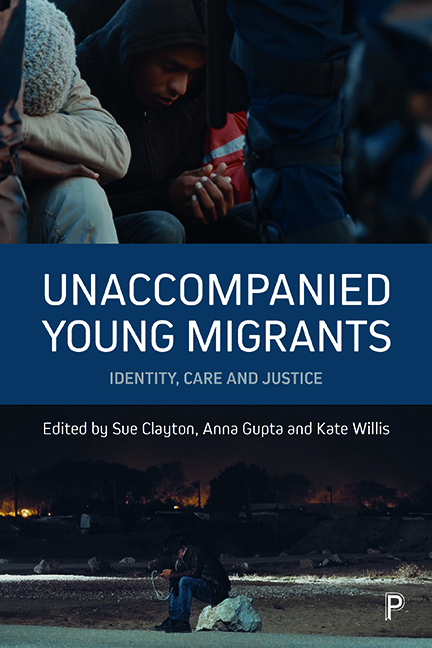nine - Unaccompanied migrant youth in the Nordic countries
Published online by Cambridge University Press: 21 April 2022
Summary
Introduction
Policies across the Nordic countries to ensure unaccompanied asylumseeking minors’ (UAMs) care and protection display some common features but also interesting diversities. These similarities and differences are related to the ambiguities raised by the young people's dual status as migrants and as children. In 2015, the number of unaccompanied minors seeking asylum in Denmark, Norway and Sweden increased from about 5,000 per year to over 40,000, with most UAMs being male and applying for asylum in Sweden. Since then the number of new applications has declined to a few thousand, but the impact of the inflow of asylum seekers (both adults and children) has left a legacy in the region. During 2018, the Nordic countries are redefining their processes to create new narratives about immigration and integration policy, and are all torn by dilemmas and competing policies to handle the challenges of a generous welfare state, national identity policies and an active endorsement of human rights. These are tensionfilled processes involving ambiguity and competing discourses each claiming hegemonic positions. The countries share a particular type of welfare state characterised by universal access to generous benefits and comparatively high levels of income redistribution. The Nordic region also faces some common challenges around the integration of refugees.
The balance between control policy and humanitarian obligations has led to the development of ambiguous policy designs that legitimise new hierarchical systems of civic stratification (Jorgensen and Thomsen, 2016). The Nordic countries have taken different stands, and the region can be studied as a test site of control and integration policies. While Sweden is well known for its multiculturalism and relatively liberal stance towards refugees, Denmark is known for one of the more restrictive immigration regimes in Europe, and Norway and Finland are positioned somewhere between the others (Brockman and Hagelund, 2011). Additionally, the countries have different formal affiliations with the EU; Norway is outside the organisation, while the other countries are EU members. However, within the field of asylum and immigration, EU policy is also significant for Norwegian regulations, as the country is a member of Schengen and included in the EU's Dublin Regulations policy (Brekke and Vevstad, 2007). In contrast, Denmark has made reservations to the EU's judicial cooperation and its common asylum policy, and has restrictive practices in cases under the Dublin Regulation.
- Type
- Chapter
- Information
- Unaccompanied Young MigrantsIdentity, Care and Justice, pp. 235 - 256Publisher: Bristol University PressPrint publication year: 2019



